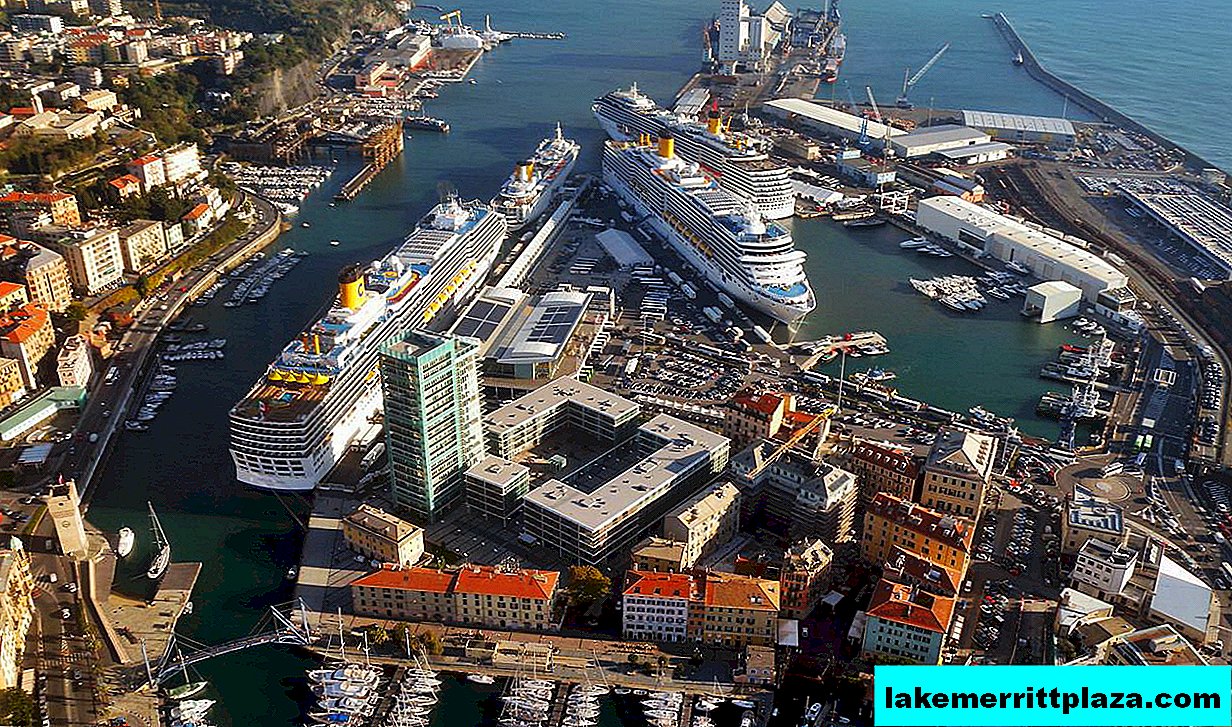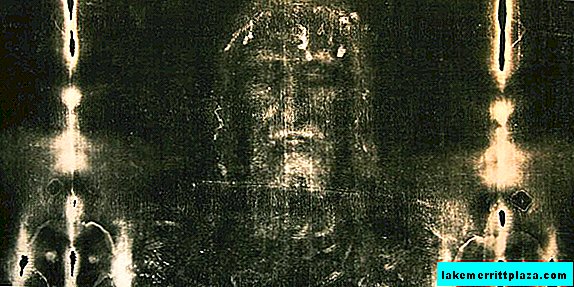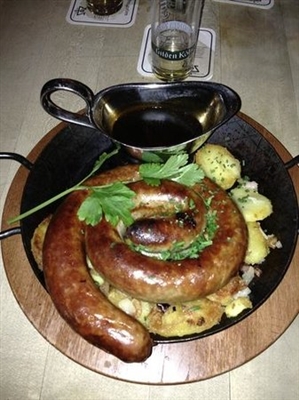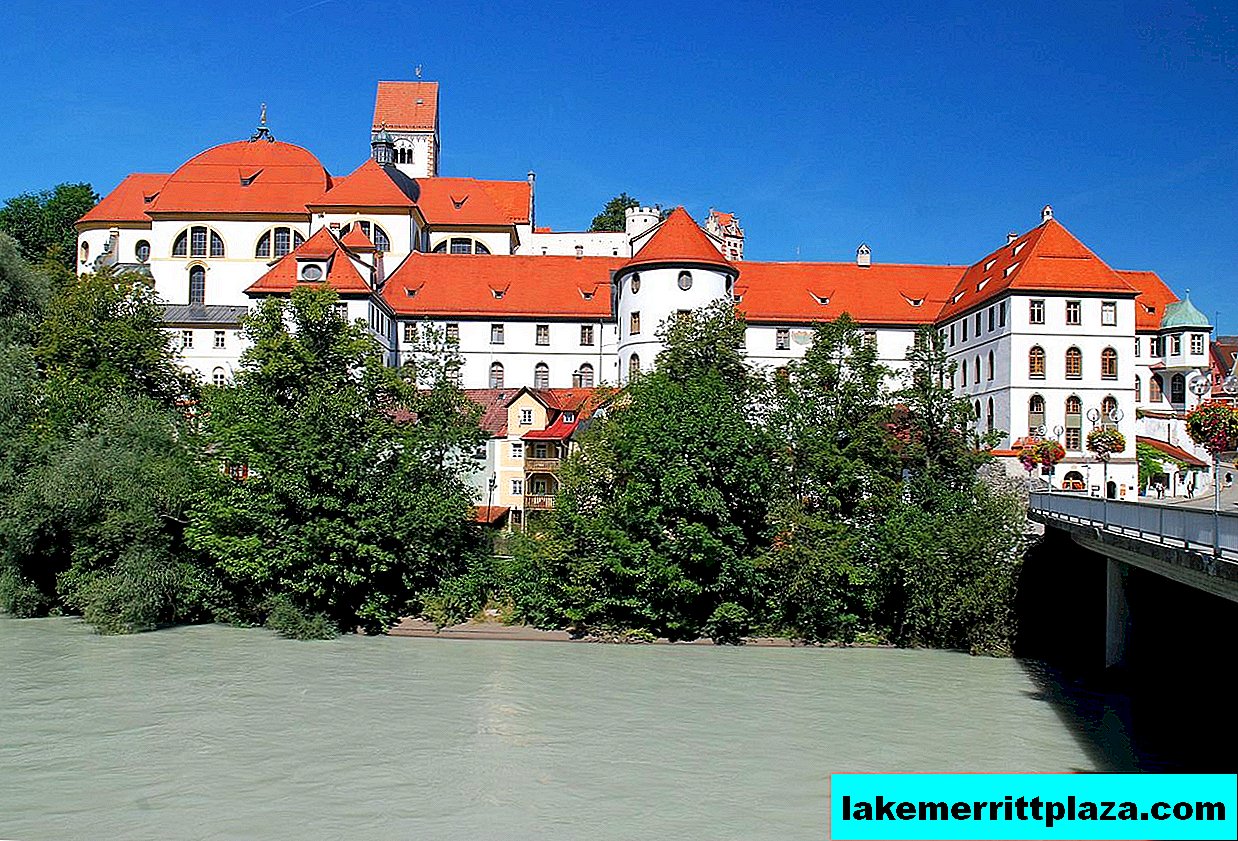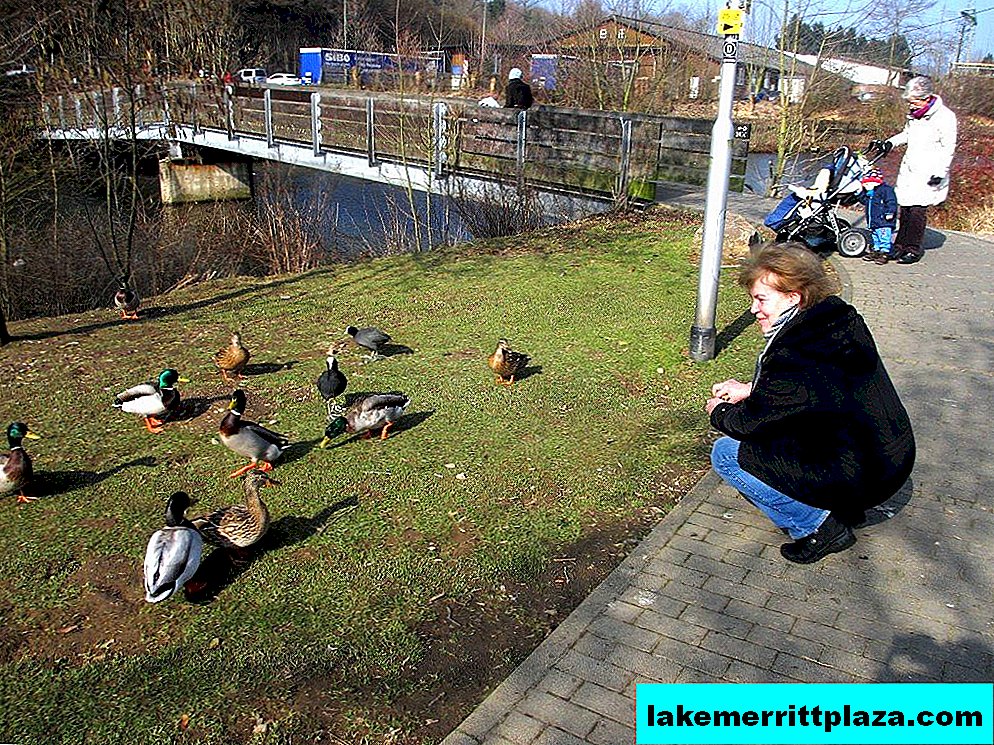Munich metro, buses, trams and city trains are part of a single transport system. All modes of transport use a single ticket.
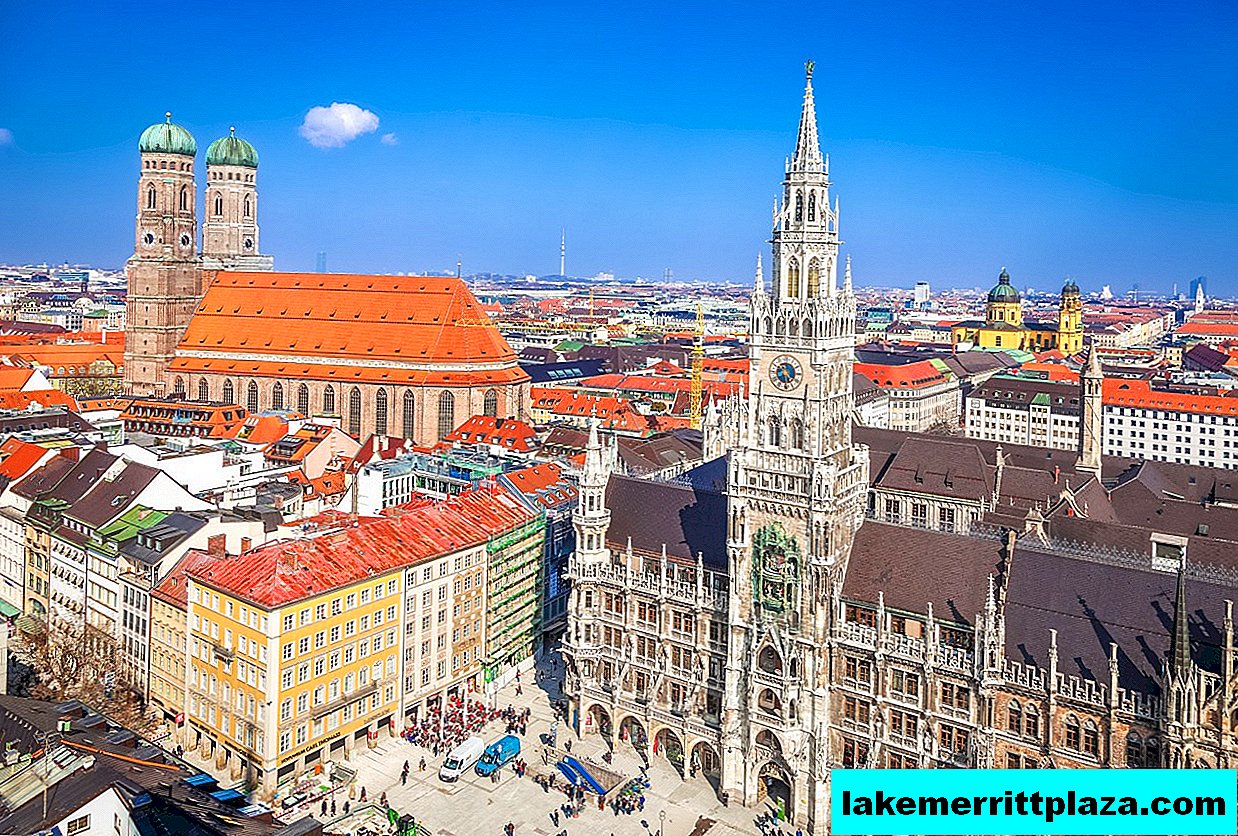
Transport in Munich
Munich's public transport means buses, trams, subways and city trains. It can easily be reached anywhere in the city. A distinctive feature of the transport of the Bavarian capital is punctuality, everything goes according to schedule.
Munich Travel Guide →
The entire transport company is managed by the state-owned transport company Munich Transport Society (Münchner Verkehrsgesellschaft (MVG)), which is part of the Munich Transport and Tariff Union (Münchner Verkehrs- und Tarifverbund (MVV)). On the MVV website you will find comprehensive information about routes, schedules. Here you can make a route to the desired destination.
Underground

In the metro of Munich
The metro (U-Bahn) and city train (S-Bahn) are the most convenient transportation in Munich. If the metro is used for intra-city communication, then the city electric train covers most of the suburbs (it has 10 lines and 148 stations).
The metro began its work in 1971. Today, the Munich metro has 6 lines and 100 stations. Its stations are equipped with elevators, escalators and travelators. And the transfer system is so thought out that the Munich metro has become one of the most convenient in Europe.
In addition to underground metro stations, there are 1 on the overpass and 5 on-ground. U6 is the only line that goes beyond the city and ends in Garching.

Scheme of the metro and city train in Munich
Subway opening hours:
weekdays - from 04:00 to 01:00,
Weekends - from 04:00 to 02:00.
Train interval:
at the usual time of day - 10 minutes,
at peak hours - up to 5 minutes.
There are no turnstiles in the metro, so you need to activate tickets at the entrance to the station.
Tram

Munich Tram
Munich tram (Straßenbahn München), which residents call the city in short - Tram or Trambahn - the oldest city transport. The first tram appeared in 1876. The Munich tram was electrified in 1895-1918. Today the tram network consists of 11 daily routes (trams No. 12, 15-21, 23) and 4 night routes (No. 17, 19, 20, 27).
Tram number 25 is the only one that leaves the city and travels to Grunwald.
Tram working hours:
in the afternoon - from 04:30 to 01:30,
night routes - from 01:30 to 04:30.
Interval of movement:
in the afternoon - 10 min.,
at night - every 30 minutes or 1 hour.
There are pavilions for waiting at all stops. There you can see the schedule of transport. If something changes, then this is announced through the loudspeaker.

Stop
Buses
The Munich bus (Bussystem München) is an important component of public transport. The city bus network has 65 daily routes, 12 night routes and is divided into 3 types, each of which has its own function.
Metrobus
MetroBus buses are designated by double-digit numbers (Lines 50-60, 62 and 63). They connect remote areas of the city, shopping centers and transport hubs.
Stadtbus
StadtBus - city bus. Their numbers are divided into 5 ranges.
buses No. 130-159 serve the city center and inner-city lines in the southern part;
buses No. 160-169 - western areas;
buses No. 170-179 - northern areas;
buses No. 180-189 - the north-east of the city;
buses No. 190-199 - southeast of the capital;
For tourists interesting route number 100, it is also called the "Museum Line". Buses pass 24 museums from the East Station to the Main.

Ticket machine on the bus
TaxiBus
TaxiBus - buses running on special routes.
Bus hours: from 06:00 to 23:00.
Interval of movement: 10 and 20 min .; Depends on the route and time of day.
Bus stops are announced, and a message board in the passenger compartment duplicates them.
Taxi

Taxi
As before, taxi remains the most convenient and fastest form of public transport, so the locals and guests of Munich are happy to use its services. Taxi cars are mostly cream-colored Mercedes.
Main carriers: IsarFunk and Taxi-München.
A transfer from Munich can be booked at KiwiTaxi.
Tariff zones of urban transport

Munich tariff zones
Munich's transport system is divided into 4 main tariff zones: white, green, yellow, red, which are still divided into 16 rings.
German zone classification:
- inner Innerraum (white zone);
- München XXL (green and white zone);
- external Ausserraum (green, yellow and red zone);
- General Gesamtnetz (a total of four transport zones).
The city center is the white inner zone (Innenraum / München Ringe 1-4), there are almost all the most interesting sights.
Tickets
Since all types of transport in Munich are included in a single transport system, a single ticket is used for travel. The type and price of a ticket depends on the number of fare zones and the duration of the trip. If you choose the right ticket, you can save a significant amount. For stowaways a fine of € 40.
Single Travel Tickets (Einzelfahrkarte)
Einzelfahrkarte is a one-time travel ticket for travel within selected areas in one direction. You can do transplants. Varieties of this ticket.
Einzelfahrkarte kurzstrecke - One-time short-distance travel ticket, valid for 1 hour within 1 zone. But you can only travel 2 metro / city train stations or 4 bus / tram stops. This is the cheapest ticket, it costs € 1.40 if you pay by credit card / € 1.50 for cash.
Einzelfahrt 1, 2, 3, 4- you will need these one-time tickets in all other cases:
for one zone for 3 hours - Einzelfahrt 1 zone - € 2.80 on the card / € 2.90 for cash;
for 2 zones for 4 hours - Einzelfahrt 2 - € 5.60 / € 5.80;
for 3 zones for 4 hours - Einzelfahrt 3 - € 8.40 / € 8.70;
for 4 zones for 4 hours - Einzelfahrt 4 - € 11.20 / € 11.60;
Children 6-12 years old travel at a fare Einzelfahrkarte kinder and pay, regardless of zone, € 1.40. For children under 6 years old travel is free.
Streifenkarte - A block of 10 strips of tickets at a price of € 14.00, designed for 10 small trips on any type of public transport.
For short distances (within 1 hour within 1 zone), compost one strip - € 1.40. If your trip takes place within the same zone and lasts up to 3 hours - compost 2 strips;
for 2 zones for 4 hours - 4;
for 3 zones for 4 hours - 6;
for 4 zones for 4 hours - 8.
Young people aged 15-20 compost for each zone 1 strip.
Children 6-14 years old, regardless of the number of zones, compost one strip.
1 or 3 day ticket for one person (Single-Tageskarte)
If you actively use public transport, it is advantageous to buy a Single-Tageskarte ticket, designed for 1 person for 1 day, which will allow you to make an unlimited number of trips within the selected zones. The ticket is valid from the moment of composting until 06:00 the next day. Tickets purchased on a tram, bus or on-line will already have a date, so you don’t need to compost them.
Ticket price for 1 day:
for the Innenraum and Außenraum zones - € 6.70,
for zone XXL - € 8.90,
for all areas of Gesamtnetz - € 13.00.
Kinder-Tageskarte, ticket for children 6-14 years old for trips in all 4 zones - € 3.20.
A ticket for one person for 3 days is only for the Innerraum zone and costs € 16.80.
Group tickets for 1 or 3 days (Gruppen-Tageskarte)
If you are traveling with your family, it is better to buy a group ticket for 1 day - Gruppen-Tageskarte. It is designed for a group of up to 5 adults or up to 10 children 6-14 years old (there may be combinations at the rate of 1 adult = 2 children). The ticket is valid from the moment of validation until 06:00 the next day.
Ticket price:
for Innenraum and Außenraum is € 12.80,
for zone XXL - € 16.10,
for all zones of Gesamtnetz - € 24.30.
A 3-day ticket for the Innerraum zone for a group will cost € 29.60.
CityTourCard
CityTourCard - ticket for 1 day / 3 days / 4 days / for one / company up to 5 people.
Ticket price for 1 day:
for 1 person in the inner zone (Innenraum) - € 12.90;
group price in the Innenraum zone - € 19.90.
Ticket price for 3 days:
for 1 person in the Innenraum zone - € 24.90;
group in the Innenraum zone - € 39.90;
in the common area (Gesamtnetz) for one - € 44.90;
group price in the Gesamtnetz zone - € 73.90.
Ticket price for 4 days:
for 1 person in the Innenraum zone - € 26.90;
group in the Innenraum zone - € 41.90;
in the common area (Gesamtnetz) for one - € 46.90;
group price in the Gesamtnetz zone - € 75.90.
Airport-City-Day-Ticket
Airport-City-Day-Ticket - 1-day ticket for all types of public transport in all areas. It is relevant for those who fly to Munich airport. Travel is for 1 person and for a group. The group is designed for 5 adults or up to 10 children 6-14 years old (there may be another combination). Compost a ticket is not necessary. It is valid from the time of purchase until 06:00 the next day. Ticket vending machines are located at the airport and at city train stations.
Ticket price:
for one - € 13.00,
for the company - € 24.30.
For current information on tickets and their prices, see here.
Bavarian ticket
For those who prefer to use public transport without any restrictions all day, it is better to purchase a Bavarian ticket (Bayern-Ticket) (see the bahn.de website for the latest information). Its price is € 25, surcharge for each subsequent passenger - € 6. The maximum number of passengers on one ticket is 5 people.
All about the Bavarian ticket →How do I save on hotels?
Everything is very simple - look not only at the booking. I prefer the search engine RoomGuru. He is looking for discounts at the same time on Booking and on 70 other booking sites.

